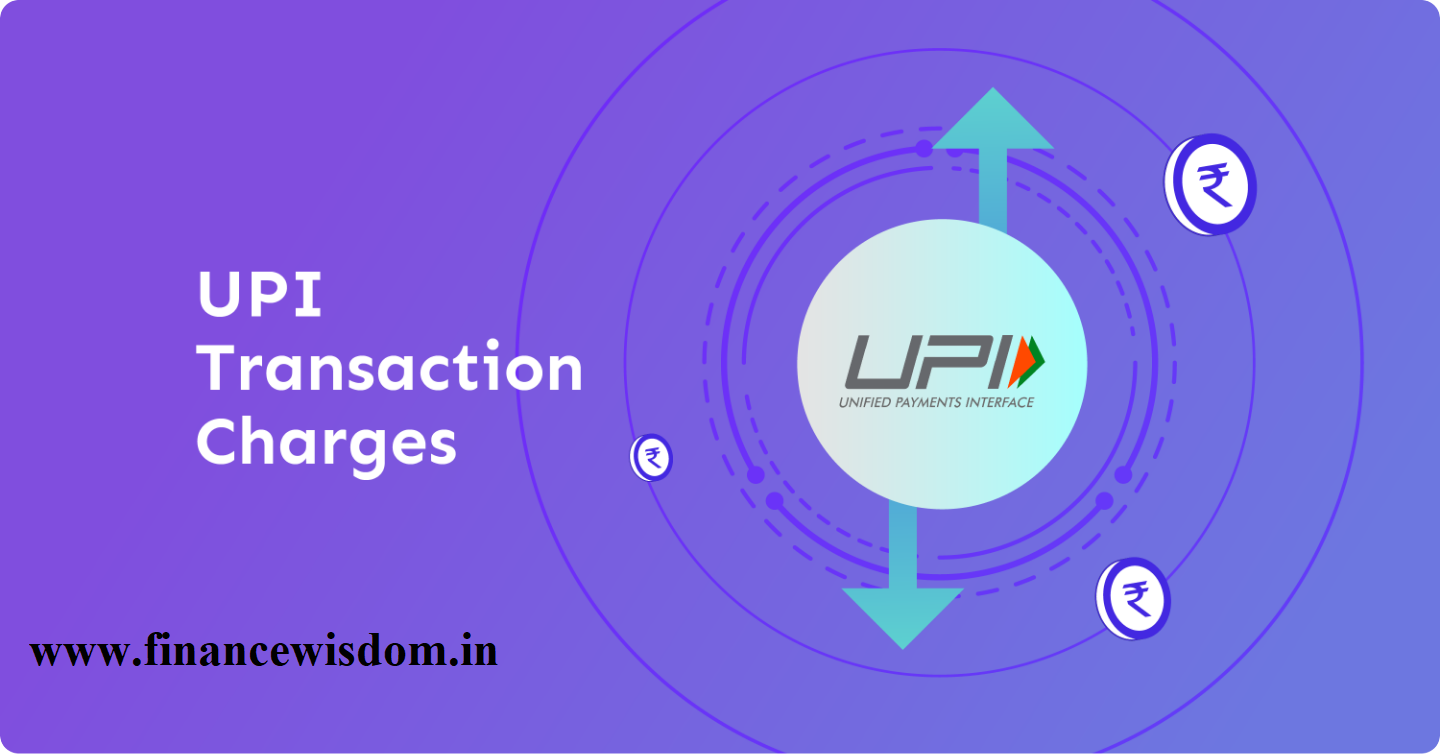UPI stands for Unified Payments Interface. UPI was developed by the National Payments Corporation of India (NPCI). Unified Payments Interface payments are very easy and user-friendly methods to transfer money from one bank to another bank. Today is the world where India is a cashless country. With the use of smartphones, we can make digital payments in India. For paying any bills, shopping bills, rent, and mobile recharges everywhere you can make payments by UPI. When you use this payment method, it is very necessary to understand all UPI transaction charges.

Prepaid Payment Instrument (PPI) in UPI
You can easily keep money in your PPI wallet and make payments very fast through your PPI wallet without your bank server. Every UPI app offers the service of a PPI Wallet or digital wallet for easy and fast transactions. Sometimes bank server is down or not working for a reason. In that case, PPI wallets play a vital role in real-time, online transactions. You can recharge your PPI wallet at any time. With the help of the wallet you can make real-time online payments for any service like day-to-day petty purchases or to keep money for your regular spending. Examples of PPI wallets in UPI apps are Phonepe Wallet, Paytm Wallet, Amazon Pay, Freecharge Wallet, etc.
UPI per day transfer Limit
NPCI decided the transaction limits for UPI payments on a day-to-day basis. Each Bank has its transaction limits on a daily basis. The maximum limit decided for UPI payment per day is rupees 1 lakh. Whereas, UPI per day transfer/payment limit varies from bank to bank from Rs.25000 to Rs.100,000. Few banks also set their UPI limits per week or month instead of per day. For example, IDFC First Bank has set a limit of Rs.1 lakh per week and Rs.30 lakh per month.
NPCI has also set a limit on the number of transactions per day. The new rule set by NPCI is that a person is allowed only 20 transactions per day if he wants to make another transaction then he has to wait for the next day. However, the limit can vary according to each bank. Here are the bank-wise details of the limit of UPI per day transfer limit.
| Bank Name | Bank Type | UPI Limit per day |
|---|---|---|
| Axis Bank | Private | 100000 |
| Bandhan Bank | Private | 100000 |
| Bank Of Baroda | Public Sector Bank | 25000 per transaction (Capped) |
| Bank Of India | Public Sector Bank | 100000 |
| Bank of Maharashtra | Public Sector Bank | 100000 |
| Canara Bank | Public Sector Bank | 100000 |
| Catholic Syrian Bank | Private | 100000 |
| Central Bank of India | Public Sector Bank | 100000 |
| City Union Bank | Private | 100000 |
| DCB Bank | Private | 5000 |
| Dhanlaxmi Bank Ltd | Private | 100000 |
| Federal Bank | Private | 100000 |
| HDFC | Private | 100000 |
| ICICI Bank | Private | 100000 |
| IDFC | Private | 100000 |
| Indian Bank | Public Sector Bank | 100000 |
| Indian Overseas Bank | Public Sector Bank | 100000 |
| IndusInd Bank | Private | 100000 |
| Jammu & Kashmir Bank | Private | 20000 |
| Karnataka Bank | Private | 200000 |
| Karur Vysaya Bank | Private | 100000 |
| Kotak Mahindra Bank | Private | 100000 |
| Punjab National Bank | Public Sector Bank | 50000 |
| South Indian Bank | Private | 100000 |
| State Bank Of India | Public Sector Bank | 100000 |
| Tamilnadu Mercantile Bank | Private | 100000 |
| The Lakshmi Vilas Bank Limited | Private | 100000 |
| The Nainital Bank Ltd | Private | 40000 |
| The Ratnakar Bank Limited | Private | 25000 |
| UCO Bank | Public Sector Bank | 100000 |
| Union Bank of India | Public Sector Bank | 100000 |
| YES Bank | Private | 100000 |
Number Of UPI Transactions Per Day
To apply checks on the UPI transactions due to the rise in UPI-related frauds, NPCI limits the no. of UPI transactions per day. As per the new rule of NPCI, the limit of the number of transactions per day is 20. Users can conduct 20 UPI transactions in 24 hours. For further transactions, UPI users have to wait for the next 24 hours to initiate transactions.
UPI Transaction Charges
We can understand the UPI transaction charges process step by step:-
- The transaction charges imposed on UPI transactions are known as interchange fees.
- When a customer pays the merchant by scanning his/her QR codes, then the merchant has to pay the interchange fees to payment service providers like Phone-pe, Google Pay, Paytm, etc.
- When customers add money to their PPI wallet through the UPI app, the Payment service provider has to pay interchange fees to banks.
- No interchange fees are levied to the customer for peer-to-peer (P2P), and Peer to Merchant (P2M).
- P2P means transaction between one individual to another and P2M means payment by customer to merchant for a purchase.
- The rate of interchange fees is applicable in the range of 0.5% to 1.1%. However, from the 1st of April 2023 onward, the interchange fees for transactions above Rs.2000 through the PPI wallet are applicable at the rate of 1.1%.
Note:- Only merchants or Payment service provider needs to pay the interchange fees. Customers will never pay the interchange fees for any transaction.
Also read: UPI-ATM Launched